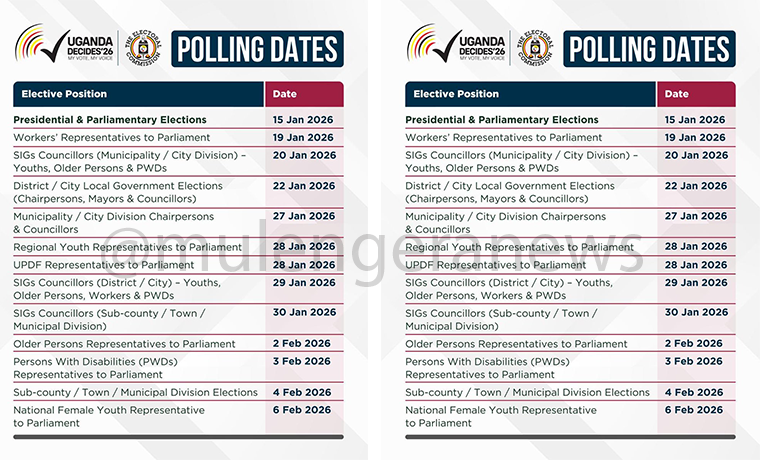By Our Reporters
During a recent media engagement at PPDA headquarters in Nakasero, this news website sought the views of the Authority ED Benson Turamye on the proposal to scrap Contracts Committees (CCs) in government MDAs and thereby end their participation in procurement processes. It’s a fact that in the proposed changes in the PPDA Act, there is a proposal to scrap the Contracts Committees from the procurement processes as part of efforts to shorten and make the process less congested. Indeed many accounting officers supervising the 360 government Procurement & Disposal Entities (PDEs) have been complaining of the process being unduly long except that many of those we spoke to complained about the Evaluation Committee and defended contracts committees. One accounting officer based in a district local government (a CAO) said the evaluation committees are there to confuse other district leaders and diminish their capability to supervise and oversee the procurement process. “The evaluation steps are too many and things are very technical there which reduces our effectiveness as accounting officers who are supposed to supervise the procurement process from a distance,” said a CAO who is among the most senior of the accounting officers’ lot at that level in the whole country.
BACK TO THE CCs;
During the media meeting, Turamye explained that the PPDA Act amendment bill was primarily not their process but ministry of finance’s. He said PPDA is only asked to give its views like any other stakeholder. But he nevertheless gave his views based on what he has gathered to be the concerns motivating those pushing for the abolition of contracts committees which one PDE procurement manager said help to scrutinize the process “and thereby shielding us from many mistakes that would have been made during the earlier stages of the procurement
process.” While disclosing that the 1st Parliamentary Counsel had already submitted the draft PPDA Amendment Bill to Finance Minister Matia Kasaija, Turamye said many of the critics believe entities can do without CCs because they don’t have any value addition on the entire procurement process. In his narrative on this matter, Turamye repeatedly clarified these were necessarily not his views or those of PPDA but what he has gathered to be the concerns of those against the CCs. He said some critics are concerned that the CCs increase on the time lost in the lengthy procurement process and have a lot of powers yet they are devoid of the much needed technical expertise. Some stakeholders feel that in most cases, the officials constituting the evaluation committees are too smart for the CC members in most PDEs. CC members are always not necessarily technical people but guys representing the different departments or directorates in a given entity (PDE). Their tenure isn’t permanent so as to build sufficient experience in procurement matters over time; they serve for only three years. “Some people feel CC members don’t concentrate on procurement work because they have a lot of work in their core mandates and departments qhere they are drawn from,” Turamye said explaining that Matia Kasaija is supposed to take and market the bill in cabinet whereafter it will go to Parliament for debating and passage into an Act. Turamye explained that there is general consensus that these changes are required in the procurement law because “everybody realizes the importance public procurement plays in driving the economy.” Turamye was reluctant to give the views of PPDA regarding the proposal to scrap and do away with CCs saying he doesn’t want to bias whatever views other stakeholders might be having and intending to table before the relevant Parliamentary Committee when that appropriate time comes. “Procurement is a vehicle through which services are delivered and all Ugandans should keenly become interested to ensure that those involved in implementation don’t use procurement to benefit themselves but to deliver services,” Turamye explained in a bid to emphasize why every Ugandan should be interested in the ongoing amendment process and actively give their views on the changes they want to see.
ABOUT THE CCs;
As for the CCs, the practice has been for them to wield a lot of powers whereby they approve and can veto any procurement in a government entity. The membership has always been reserved for the most experienced staffers drawn from the different departments comprising that particular PDE. The names have always had to be approved by PSST Keith Muhakanizi in Kampala and when endorsing the list, he is presumed to be concerned mostly about their experience and integrity in determining their suitability for the job. Each CC has always had an average of 8-10 people comprising it. For comments, call/text/whatsapp us on 0703164755!
































